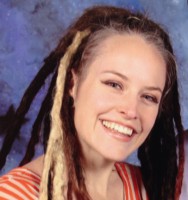About me
Besides being an enthusiastic teacher and lifelong learner, I am a licensed psychotherapist in two states, a Master Addiction Counselor, and a suicidologist. I am also a twin sister, a proud Tampa native, and a lover of all animals. Two of my favorite things to do in my free time are watch movies and visit new places.
My education
• B.A. Cum Laude in Philosophy, minors in Creative Writing and Religion – Randolph-Macon Woman’s College, Lynchburg, VA
• M.A. in Rehabilitation and Mental Health Counseling – University of South Florida, Tampa
• Ph.D. in Religious and Theological Studies, concentration in Religious and Psychological Studies – University of Denver and Iliff School of Theology Joint Doctoral Program, Denver, CO
Title of dissertation:
“Maybe Jesus Was Suicidal Too”: A Qualitative Inquiry Into Religion and Spirituality in Suicide Attempts -
https://digitalcommons.du.edu/etd/1264/
My teaching experience
I have taught at SPC since 2018. Prior to that, I taught English and economics at the University of Economics in Prague and conversational English at a Czech informatics company. When I was a doctoral student, I served as a graduate teaching assistant for six courses in six different departments, including an online course entitled “Art, Thought, and Spirituality” and a face-to-face Introduction to Psychology course with more than 80 students. Finally, I have given dozens of community and workplace presentations on suicide, substance use, Motivational Interviewing, mental health, and compassionate caregiving.
My philosophy of higher education
“Critical thinking does not simply place demands on students, it also requires teachers to show by example that learning in action means that not all of us can be right all the time, and that the shape of knowledge is constantly changing…. When everyone in the classroom, teacher and students, recognizes that they are responsible for creating a learning community together, learning is at its most meaningful and useful.” – bell hooks,
Teaching Critical Thinking, 2010, pp. 10-11
Like psychotherapy, educating is an act of co-creation. Something dynamic happens when human beings convene to exchange ideas constructively. It is sometimes active, sometimes passive; sometimes agential, sometimes receptive; sometimes passionate, sometimes reserved... but always generative. Both parties are changed by the encounter. I think that the best educators today allow for this two-way flow of energy. They recognize the power implicit in their role and, like a comic-book superhero, use it responsibly.
The classroom should not be a place students dread entering because they will be talked at, condescended to, or lulled to sleep. Rather, it should be a venue for mutual learning, stimulation, imagination, and experimentation. Students should feel safe to take intellectual risks. Such is the domain of critical thinking, which I take to be one of the highest virtues of higher education. In a classroom where critical thinking is fostered, students do not automatically accept information but ponder the contexts, origins, and implications of that information. They come to understand themselves in relation to it and decide whether, and how, they will use it in their lives. In such a classroom, students take ownership of and pride in their learning.
More than perhaps ever before, the value of higher education, especially liberal arts, is being called into question. Higher education today must be worthwhile, respectful, and applicable, or students will stop showing up. I feel that emphasizing critical thinking while displaying positive regard for my students is essential to creating such an environment.
